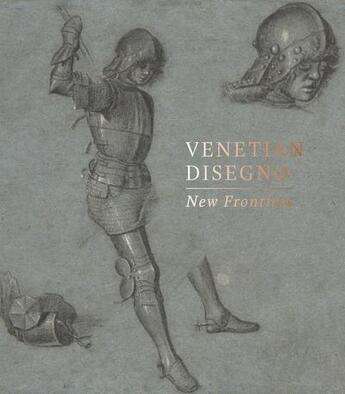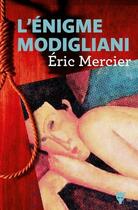-
Date de parution : 03/03/2023
-
Editeur :
Paul Holberton
-
EAN : 9781915401007
-
Série :
(-)
-
Support :
Papier
Résumé:
Venetian Disegno: New Frontiers circa 1420 to 1620 offers a fresh perspective on the art of Venice and the Veneto. The volume brings together the contributions of scholars and curators specialist on a wide variety of artists and art forms including drawing, painting, printmaking, sculpture and... Voir plus
Venetian Disegno: New Frontiers circa 1420 to 1620 offers a fresh perspective on the art of Venice and the Veneto. The volume brings together the contributions of scholars and curators specialist on a wide variety of artists and art forms including drawing, painting, printmaking, sculpture and architecture. Venetian Disegno: New Frontiers circa 1420 to 1620 takes disegno as its central theme, that in its plurality of meaning allows for a consideration of the conceptual role of design and the act of drawing. The relationship between disegno and Renaissance Venetian art has historically been a problematic one, with emphasis instead being placed on the Venetian predilection for colore. This volume is reflective of an ongoing challenge to this perspective and draws attention to the importance of Venetian disegno and the study of drawings for understanding various art forms. The book commences with a critical study of what constitutes disegno in Venetian art. It does so through questioning the historiography of Venetian artistic scholarship and the restrictive framework and preconceptions that have emerged before setting out the merits of a broader, more inclusive approach. Disegno is applied in its multifaceted nature to address the physical act of drawing, the tangible drawn object and the role of design in artistic practice. The term 'Venetian' is taken to encompass both Venice and its mainland territories not least because of the mobility of artists across and beyond the region. Contributions are divided into five thematic sections. The first, entitled 'Peripheries', frames the art of Venice within a wider discourse on the movement of ideas across and beyond the Veneto in locations including Padua, Verona and Rome. A section on Media considers the origins and innovations that took place in the use of materials such as blue paper, oil and coloured chalks. In another, the theories that have developed on Venetian notions of disegno are brought under scrutiny, addressing topics such as the long upheld perspective that Venetian artists did not draw, the role of sculpture in Tintoretto's drawing practice and the interrelation between the written and drawn line in Palma Giovane's draftsmanship. The section on Invention reflects on the technical innovations that were facilitated through the uptake of printmaking and the intellectual freedom granted by humanist patrons. Finally, Function gets to the heart of the practical purpose of disegno. Contributions focus on the workshops of the Bellini family and Titian to consider the diverse ways they used drawing within their artistic practices with an emphasis on technical analysis. These sections are all preceded by introductions that provide an overview on each theme while the volume is bookended by two reflections on the state of research into Venetian disegno and the potential for further progress. Sumptuously illustrated with over 100 images with a comprehensive bibliography, Venetian Disegno: New Frontiers circa 1420 to 1620 represents a significant contribution to scholarship on the art of Venice, Renaissance workshops and drawing studies.
Donner votre avis














